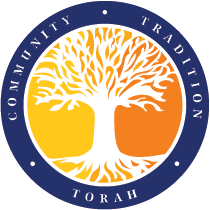Recently, I visited the home of Franklin Delano Roosevelt and his presidential library in Hyde Park. The house is preserved much the way it looked when FDR died in 1945 and the museum at the library does an excellent job of telling the story of his presidency. One of the more interesting aspects of the site is how FDR’s wife Eleanor (who has her own abbreviation, ER) fits into the narrative. She and her husband were distant cousins, and she was the niece of Teddy Roosevelt, so she brought her own distinguished pedigree to the relationship.
The home at Hyde Park actually belonged to FDR’s mother, and the family hierarchy can be seen in the fact that Eleanor’s small bedroom was sandwiched between her husband and mother-in-law’s large corner rooms. The museum, however, gives ER the pride of place she deserves as one of the most distinguished Americans of the 20th century.
On display is an exhibit highlighting the over 3,000-page FBI file on ER. You can rifle through facsimiles of a portion of documents in a working file cabinet. J. Edgar Hoover, the longtime FBI director, suspected ER of being a communist because of the of the liberal causes she fought for – women’s rights, civil rights, refugee rights, the United Nations. The museum highlights these areas of her activism, and today she is celebrated for them while no one suspects her of being a secret communist.
After seeing the museum’s exhibit on ER, I reached into the Adath Israel archives to listen to the speech she gave at the synagogue for an Israel Bonds dinner sometime in 1959 or 1960. In a little over a half an hour she delivers a passionate, warm, and funny case for investing in Israel’s future as a bastion of liberal values and defense against the spread of communism in the world.
What is remarkable about ER’s speech is her advocacy for Israel from a liberal point of view. Today, the left is becoming more and more hostile to the Jewish state, but in the late 1950s, one of America’s greatest liberals was comfortable supporting, and publicly defending Israel, with real consequences. When ER first visited Israel in 1952, she was not well received in the Arab world because of her position on Israel, despite the fact that she visited Palestinian refugee camps and advocated for a solution to their plight in the United Nations.
ER’s admiration for Israel came from her liberal values, not despite them. As a tireless advocate for refugees and the downtrodden, she notes in her Adath speech that Israel takes in all Jews, whether they have tuberculosis or are blind. She asks whether the United States would be willing to do the same. In one colorful story, she speaks of a new immigrant whom she meets who wants to sell his daughter. The Israeli government representative tells him that such things are not done in this new modern and liberal country.
Much of ER’s speech at Adath is focused on her latest trip to Israel, which took place in March and April of 1959, and many of her anecdotes can be found in less colorful form in her daily syndicated column “My Day”, which she produced from 1935 to her death. She wrote it six days a week until 1961 when it went to three days a week. It was her diary, but for all the world to read.
One of her visits was to a kibbutz near Eilat, most likely Yotvata. She tells of how the young residents of the settlement fought off locusts who would have decimated their crops. She and her granddaughter Nina were incredibly impressed with the Israeli young people who were consciously building their country, as opposed to the American youth who think of their country as already built.
On the trip it seems that Nina bought a camel in Beersheba, and ER regales the Adath audience in the extended tale of how the U.S. government won’t allow the animal into the country, much to her relief, and the funny correspondence between Nina and her father about the animal. ER sarcastically laments that the camel will not be able to roam the property at Hyde Park, to the chagrin of Nina’s younger sisters.
ER tells the audience that when she visited Jewish refugees after World War II in Germany she was struck by their plight. She was sure they would never become normal children, but when she saw them a few years later in Israel she saw that “they had grown healthy and strong and normal, and they were blooming.” Israel for her was an example of a solution to a massive injustice, and the triumph of the human spirit.
ER had a role to play in making sure those refugees could come to Israel. She recounts that when she was at the UN, she fought for the right of the Jews to not be forced to return to their countries even though the Soviet Union insisted that they do so. Israel was part of America’s defense against communist aggression, and she ends her speech with a note of thanks:
I’m grateful as a citizen of the United States to you who are all citizens of the United States for recognizing what you are doing, not only for your people, but for your own country.
It is fascinating to hear ER’s words in the context of Israel’s position today when many see the Jewish state as a liability for America, and when it has become a pariah among some in the West. There was a time when a great liberal champion like Eleanor Roosevelt would speak out for Israel not just because it was a Jewish refuge, but also because it was a liberal refuge. And one of those moments was at Adath Israel Congregation in Trenton, New Jersey.
